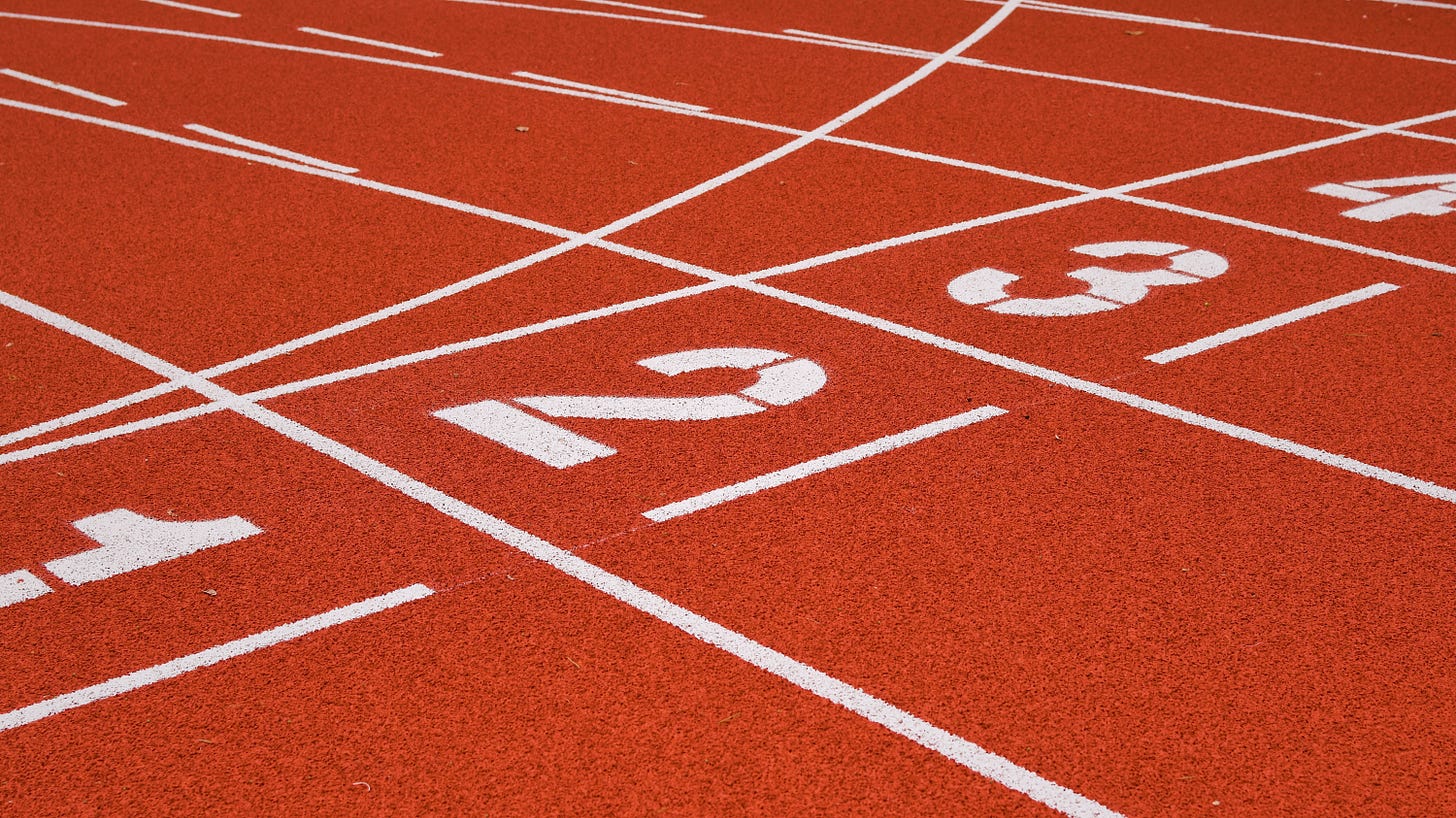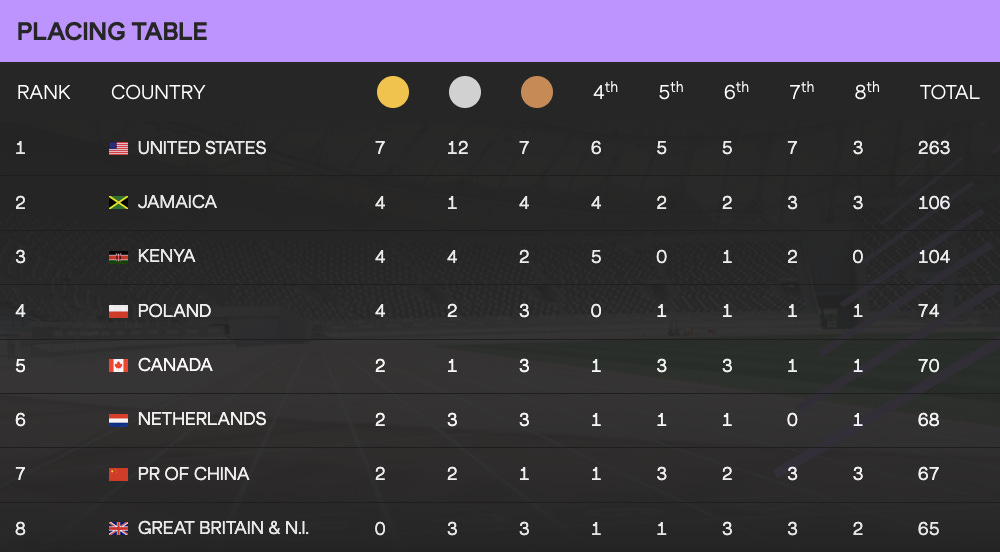I’ve been asked a few times this week for my views on the performance of the GB athletics team in Tokyo, but down the years have always reserved my opinion until after competition is over. Perspectives can swing right up to the final event. Now that the men’s marathon is run, though, only retrospective drugs busts in future can alter the record books.
And these record books show that this was Britain’s poorest Olympics for 25 years - if the medal table is your yardstick of choice, that is.
GB athletes certainly provided the thrills we craved, just not quite enough of them. Six medals was nicely in the hoped-for zone, but too few events featured British athletes in finals. Injuries to teary medal hopefuls made many of the headlines, but frankly these are a feature of every championships and preventing them is simply part of the business.
The medal table makes dismal reading mainly by virtue of the lack of a British Olympic champion, golds being the first determinant of a nation’s standing. The last time GB came away from a Games without a gold medal was 1996. 24th place overall is grim and compares with 3rd, 8th, 4th and 6th over the past four Games. Even if Nethaneel Mitchell-Blake had held on for gold in the sprint relay, Britain would only have bumped up to 13th spot.
It’s not all about medals, though, as I argued in the Sport inc. preview of this Olympics. But any metal shortage needs to be countered by depth and breadth of team performance.
I’ve always thought that the placing table is the best barometer of a country’s overall showing at a championships. For the uninitiated, this gives eight points for 1st place in an event, scaling down to one point for an 8th place finish. It irons out the quirks of the preeminence of golds in settling the medals table, and recognises athletes finishing just off the podium.
On this measure, Britain’s Tokyo return is still worrying, the team finishing 8th with a lowly 65 points. In London 2012 GB was 5th with 95 points; in Rio it was 4th on 93 points. In the two world championships that have taken place since Rio, Britain’s athletes mustered 105 points for 3rd (London 2017) and 82 points for 6th (Doha 2019).
There were positive signs, in spite of the edge of disappointment. Britain’s men’s and women’s middle distance runners are delivering a spirited revival of the country’s competitiveness in these events. And of course the sprint relay squads both delivered medals again, which is becoming a wonderful habit.
But 16 top eight finishes is simply sub-par for a surprisingly large team of 75 athletes
The current leadership of UK Athletics - under interim chair Nic Coward and CEO Joanna Coates - has been highly critical of the system it inherited, and has gambled on a performance director from outside the sport, as well as a relatively inexperienced if charismatic head coach, Christian Malcolm. One can only assume that by denigrating their inheritance and seeking a new way, Coates and Coward believe it is possible for Britain to achieve consistent top three positions in the placing and medal tables in the years to come. That’s a mighty, mighty tall order.
The early signs are not too good. If noises emanating from within the athlete and coach community in recent months are anything to go by, these two cohorts are missing the focus, drive and experience embodied by the two previous head coaches, Charles van Commenee and the late and much-missed Neil Black, who also doubled up as performance director. Black was asked to leave his role after Doha 2019, a decision apparently taken by the previous interim chair. It looked a crass move at the time, and even more so now.
At the heart of the problem, I believe, is the thinness of experience of elite athletics at board level and within UKA’s current executive team, and with it an insufficient understanding of what it really takes to succeed in this sport. Nic Coward steps down as interim chair in the autumn and the search for his permanent replacement is already underway. It presents a golden opportunity to redress this deficiency and to instigate a pause and reset of the current strategy.
The headhunters would do well to consult Sir Brendan Foster, winner of Britain’s solitary athletics medal at the Games in Montreal, 45 years ago, and Jack Buckner, the former athlete who has overseen the turnaround at British Swimming.
First move that any new chair should instigate? Bring in an experienced hand to work alongside Christian Malcolm to guide his development and help him realise his full potential as a head coach. The next two years bring two world champs, as well as a Euros and a home Commonwealth Games. After Tokyo’s stumble backwards, an energised blend of youth and experience at the head of the team may be just what Britain needs to use these competitions to propel it to Paris 2024 on an upward trajectory. Time is short.
Best defence
Hats off to Mark Davies, chair of British Rowing, who has penned a feisty defence of his oarsmen and women in the spat with retired rowers that followed the disappointing return of only two medals for Britain from the Tokyo regatta. If you’ve not seen it already, you can read it here:






Very well said, Ed. All good points. Christian had not been in post long enough to have a huge influence except I would guess on relays but a review is needed. Too many under-performed and too many suffered injuries.
Really clear, considered and valuable insights here. I suspect the success elsewhere (swimming, eventing, BMX) has taken the spotlight off athletics but the questions raised here will likely become more widely discussed in the coming months.